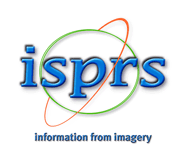ISPRS Technical Commission IV
Spatial Information Science
President | ||
 | Sisi Zlatanova UNSW Built Environment University of New South Wales Red Centre Building Kensington Campus Sydney NSW 2052 AUSTRALIA +61 4 2449 2894
| |
Vice President | ||
 | Maria Antonia Brovelli Department of Civil and Environmental Engineering Politecnico di Milano P.zza Leonardo da Vinci 32 20133 Milan ITALY +39 02 2399624
| |
Secretary | ||
 | Hao WU National Geomatics Center of China 28 Lianhuachi West Road Haidian District Beijing 100830 CHINA +86 10 63881018
| |
Terms of Reference
- Strengthen the work on multidimensional spatial modelling and interoperability towards seamless data fusion.
- Advance the investigation and research on open data and open software to support wither collaboration and foster advanced experimentation.
- Intensify the research on spatial analysis, data quality, uncertainty modelling and artificial intelligence towards more advanced analytical tools.
- Encourage the use of high-performance, reliable, and knowledge-based techniques for geo-computation and geo-simulation towards development of demos and applications for modelling of complex space-time processes.
- Advance the research on crowdsourced data, internet of things, and public participation, towards community-driven and participatory intelligent systems.
- Strengthen the research on indoor/outdoor location-based services, navigation and tracking, and mobility towards seamless applications and analytics.
- Advance the research on spatial data types, indexing methods and analysis to further contribute to development of spatial SQL and no-SDL DBMS, cloud databases and date lakes for management and analysis of multi-dimensional data.
- Advance visual analytics and online multi-dimensional, virtual/augmented and mixed reality visualizations on different platforms towards advanced human-centered applications.
- Advance knowledge on use of spatial information (BIM/GIS/sensors) for urban modelling and creating spatially enabled Digital Twins.
- Advance the research in understanding and modelling human behaviours towards sustainable decision making and planning.
- Encourage the use of spatial information in different fields such as health, heritage, and disaster management towards improving domain specific technology and applications.
- Strengthen the research on global mapping, big geospatial data to support the UN SDG.
Comm IV






